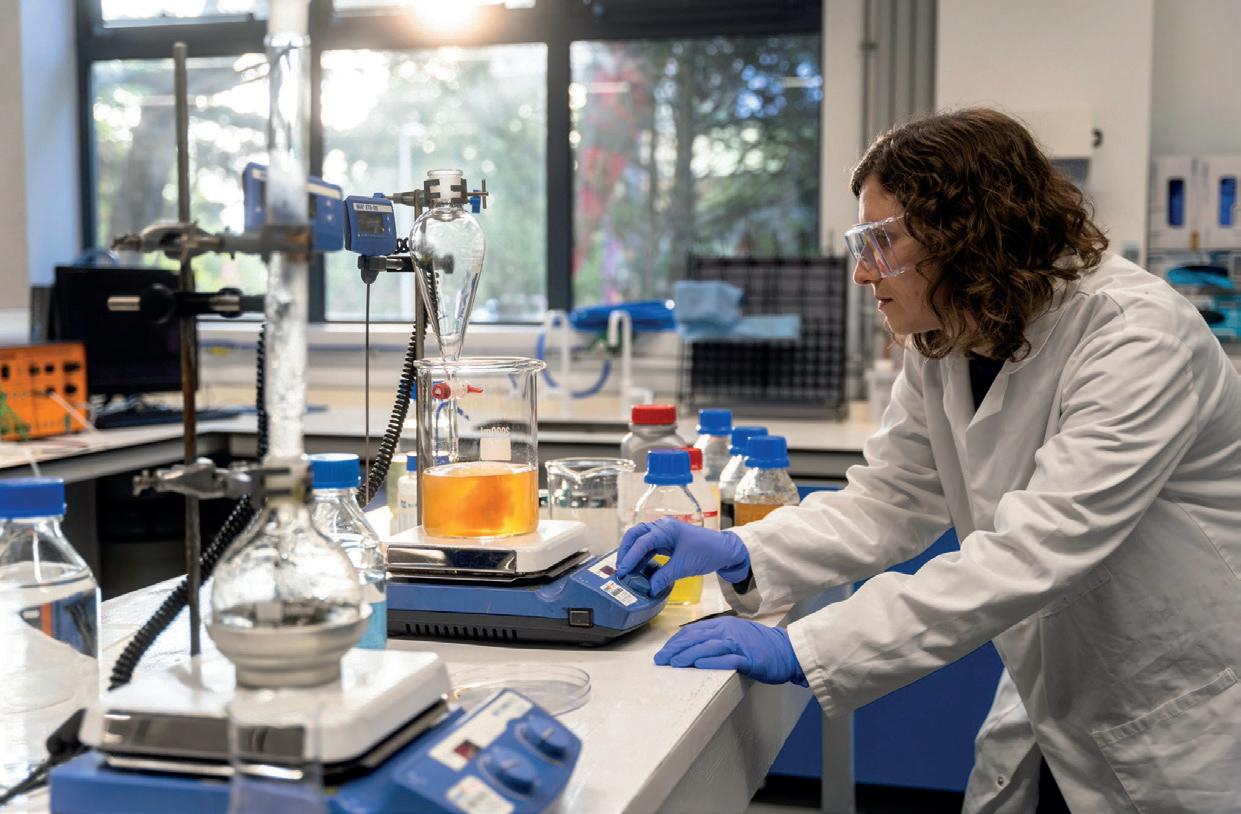
3 minute read
SCIENCE CREATES SUPPORTS DEEP TECH INNOVATION
Science Creates is a Bristol-based deep tech ecosystem including two incubators and a venture capital investor which helps scientists and engineers commercialise their scientific discoveries. It was launched around seven years ago by Dr Harry Destecroix, who sold his biotech start-up, Ziylo, to Novo Nordisk for up to $800 million in 2018 (he was just 31 one at the time).
In partnership with the University of Bristol, Science Creates now combines specialist incubator facilities (which include laboratories, o ces, event space, deep tech and finance mentors) across two sites in the city with a dedicated venture capital fund.
Despite his eventual success in selling his business, Harry originally struggled to raise money and had been turned down by venture capital investors. He didn’t want that to be a barrier for other promising businesses in Bristol which at that time had almost no venture capital sector, and few spin-outs from its universities.
So he founded Science Creates. Just a few years later, the university is sitting comfortably in the UK university top 10 for spin-out companies.
Dr Catherine Fletcher, who did her PhD in Synthetic Organic Chemistry at Bristol, is principal at Science Creates Ventures.
Encouraging scientific founders to become entrepreneurs
“We invest in deep tech and encourage and enable scientific founders to become entrepreneurs. We are founder-friendly, but we also want them to understand where their skillsets lie. If they want to become their new company’s chief executive, then we will support them. Equally, some prefer to take a chief technology o cer or chief scientific o cer role, remaining close to their technology where most of the focus needs to be at the early stage.”
For Catherine, there are three main elements to commercialising innovation and making it attractive to potential investors: the technology, the team behind it and the potential product.
“What you will often hear is, if the right team has an idea and it doesn’t work, a great team will make it work. And if you are in a sector such as software as a service, that may well be true. But at Science Creates we are talking about deep tech, about layers and layers of research and development in wide-ranging areas from bio or agri-tech to engineering, and where perhaps years of research has finally resulted in the securing of intellectual property on the idea.
“If you have proved your technology works, and there is a need or appetite for it, then you want the right person driving the business’s development, and that might mean bringing expertise in from outside.”
She also warns about taking a product to market too early.
“In deep tech things need to be done di erently,” says Catherine.
Start-ups in the deep tech sector risk being shoehorned into a route to market when they haven’t fully explored the full scope of their technology. Investors, who perfectly understand market risk, can encourage start-ups down the market route too early.”
“We say: if a founder spends longer de-risking the technical part, they will have a better understanding of the limitations of the technology and what the first product should be, then the market risk is reduced because they will be more likely to deliver. This results in a product with a much better market fit.
If you lock in your product too early and take it to market, it’s more di cult to adapt and more likely to fail.”
This is a tough strategy to follow with few enough early-stage investors, but most deep-tech investors understand the long time horizons to market, although there are always opportunities for early exits for the best companies.
Five companies secured Science Creates Ventures investment last year

Science Creates Ventures invested in five companies last year. Nebu-flow is developing the next generation of nebulisers; Open Bionics continues to successfully develop its prosthetic Hero Arm; Scarlet Therapeutics is applying advanced genetic engineering to red blood cells aiming to transform them into new treatments; IsomAb is taking a di erent approach to developing isoform specific antibodies to treat diseases with limited treatment options and Kelpi is harnessing the novel properties and environmental benefits of seaweed to replace single-use plastics with bioplastics.
In the last year alone, these companies collectively raised more than £25 million.
“We don’t invest in unproven ideas, we invest in IP,” added Catherine, “most of which have been developed by university spin-outs.”









